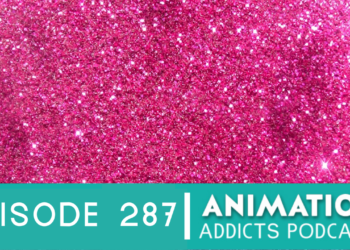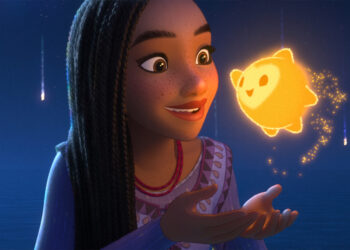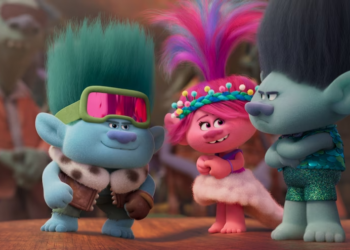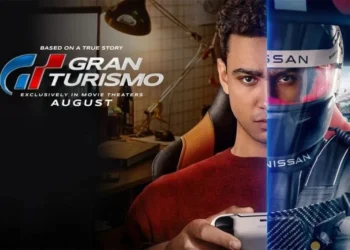Perhaps the biggest challenge in creating educational/informational television for children–regardless of their age group–is to make the curricular content engaging enough so that the target audience will actually enjoy learning. Over the last 50 years, many shows have tried to capitalize on this core idea. And as far as elementary- to middle-school programming goes, I think it’s safe to say that the 1990s and the early 200’s were the golden age; this was the period that saw the premiere of such successful programs as Kratts’ Creatures, Bill Nye the Science Guy, The Wild Thornberrys, and Liberty’s Kids, to name just a few. This review, however, will cover the one which has left perhaps the farthest-reaching legacy of any of them. So fasten your seat belts, everyone, as we look at the blast from the past that is The Magic School Bus (1994-1997).
Based on the best-selling book series by the late Joanna Cole, The Magic School Bus follows the (presumably) daily adventures of the 3rd grade science class at Walkerville Elementary School, taught by Valerie Frizzle. In each episode, Ms. Frizzle takes her students on a field trip aboard the eponymous school bus to explore how the world works. Aided by her trusty chameleon assistant Liz, she and the students totally immerse themselves in various scientific processes, ranging from digestion to the water cycle, and many more. As each field trip goes along, the students apply their newly acquired knowledge to overcome any obstacles that arise.
To start with, I just want to say that Ms. Frizzle strikes me as perhaps the most brilliant school teacher, fictional or otherwise, that I’ve ever seen. For all her eccentricity, she’s highly intelligent, supportive of her students, and filled with boundless enthusiasm (helped in no small part by Lily Tomlin’s spirited vocal performance). And best of all, her love of learning rubs off on all of her pupils, who likewise hold her in high esteem. All things considered, is it any wonder that those of us who watched the show wanted a teacher like her?

Naturally, Ms. Frizzle comes close to stealing the show, but that’s not to say that her class is represented as a single-minded mass. Each of her students has their own distinct personality, making for quite an eclectic group:
- The cautious (and long-suffering) Arnold Perlstein, who wonders every episode why he can’t have a “normal” science class like everyone else yet never fails to step in to help his friends when things go wrong.
- Wanda Li, a spunky go-getter type who is quick to spur her classmates into action.
- Class comedian Carlos Ramon, whose endless supply of puns puts Fozzie Bear to shame.
- Phoebe Therese, who is tender-hearted and a friend to all living things, albeit with a habit of comparing Walkerville Elementary to her former school.
- Ralphie Tennelli, an athletic boy who also has perhaps the most active imagination in the class.
- Dorothy Ann Rourke–book-smart and rational–she clearly has the makings of a future scientist in her.
- Keesha Franklin, a pragmatist who seldom loses her head in a crisis.
- Tim Jamal, who has a keen eye for detail and often documents the class’s field trips.
The basic premise behind The Magic School Bus is a highly creative one–taking a field trip on a school bus that can shrink down, travel back in time, and transform into various other vehicles (and even different types of animals), with the students exploring the miracles of nature and science up close and personal–makes it one of the downright coolest elementary-school programs ever created; the same applies to the original book series, as well. (Incidentally, I think that whoever designed the school bus in-universe deserves an award.) Admittedly, it does take some narrative license with the material that it teaches (as evidenced in the “Ask the Producer” segment at the end of each episode), and some of the information it presents–namely, in the episodes concerning dinosaurs, computers, the food web, and the solar system–is now outdated, but generally speaking, it still holds up very well after the past 25 years. Small wonder, then, that home video editions are still quite commonly found in elementary school classrooms today. And, as far as I can tell, the recent reboot follows faithfully in the original’s footsteps (even with the changes made to it).
In summary, The Magic School Bus is arguably the best example of a grade-school educational TV show that teaches and engages its target audience in equal measure. With a colorful cast of characters, well-researched curricular topics, and imaginative storylines, it’s truly a classic for the ages.
What’s your favorite adventure with the Frizz? Comment below!
This is a user-submitted post by Jordan Hashemi-Briskin.
Edited by: Kelly Conley


![[SERIES REVIEW]: ‘The Magic School Bus’](https://www.rotoscopers.com/wp-content/uploads/2020/07/Mrs._Frizzle-750x375.png)




![[TEASER TRAILER] ‘Hoops’ Dribbles over to Netflix](https://www.rotoscopers.com/wp-content/uploads/2020/07/hoops-75x75.jpg)